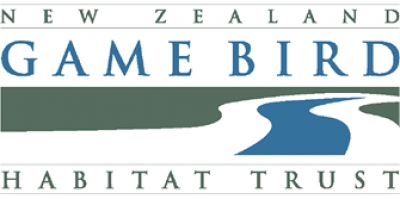What the Game Bird Habitat Trust does
The Game Bird Habitat Trust was established by the Wildlife Act 1953 and must comply with the Crown Entities Act 2004 as per the 4th Schedule of the Public Finance Act 1989.
There are a range of functions set out in section 44D of the Wildlife Act, but primarily it is to improve New Zealand’s game bird habitat and its secondary
function is to improve the habitat of other wildlife.
This is achieved by identifying, evaluating and funding areas of New Zealand worthy of protection, restoration, or creation of suitable habitat. The trust is also charged with recommending the production, fees and species to be depicted on the following year’s Game Bird Habitat Stamp to the Fish and Game Council.
The bulk of its funding is provided through the Game Bird Habitat Stamp programme. The Habitat Trust has charitable trust status but is yet to receive any significant donations. Additional funding via corporate partnerships is being explored.
The trust is the sole public body or charitable trust dedicated to providing
financial backing for game bird conservation in New Zealand. It has been influential in supporting many projects over the years by recognising that often all that is needed to enable a project to go ahead is a modest grant.
The trustees recognise habitat protection as one of the most significant drivers
of positive change for New Zealand’s wildlife.
Farmland ponds across New Zealand are important habitat for wildlife in
the agricultural landscape. Healthy networks of these ponds, at different stages of their lives, help wildlife species to move around farmland habitats.
As habitat fragmentation continues to increase, they are more important than ever. Without them, many species would struggle to survive.
The trust is working to increase the number of ponds on rural land by helping landowners restore existing overgrown ponds and create new ones.
The Para Wetland in Marlborough is one of the most significant projects funded by the trust and has become its “flagship” project over recent years. The trust has been able to assist the Nelson/ Marlborough Fish and Game Council develop and implement a detailed management and development plan, promote public interest and mobilise support from other funders.
Other major projects supported by the trust include the Takitakitoa Wetland and the Underwood Wetland near Dargaville. The trustees are looking
at other potential significant projects including the JK Donald Block on the north-eastern edge of Lake Wairarapa.
The trust prides itself on punching above its weight in terms of its contributions
to habitat protection over the past 25 years. Back in the early years, it was one of a small number of agencies allocating funds to landowners for habitat protection. Local regional government and other funding agencies are now allocating much larger sums. Today, the trust helps fund about 20 projects a year. These modest amounts are often enough to trigger additional investment and ensure protection goes ahead.
Applications for grants from the trust close on 30 June each year and are open to anyone with support from the landowner and a recognised habitat referee.
The trust celebrates the fact that hunting is not only part of a unique tradition that links present day New Zealanders to our ancestors and the rural community, but
is also responsible for funding habitat initiatives that might otherwise never be completed.
Without habitat, there is no wildlife. It is that simple, Andy Tannock says.


